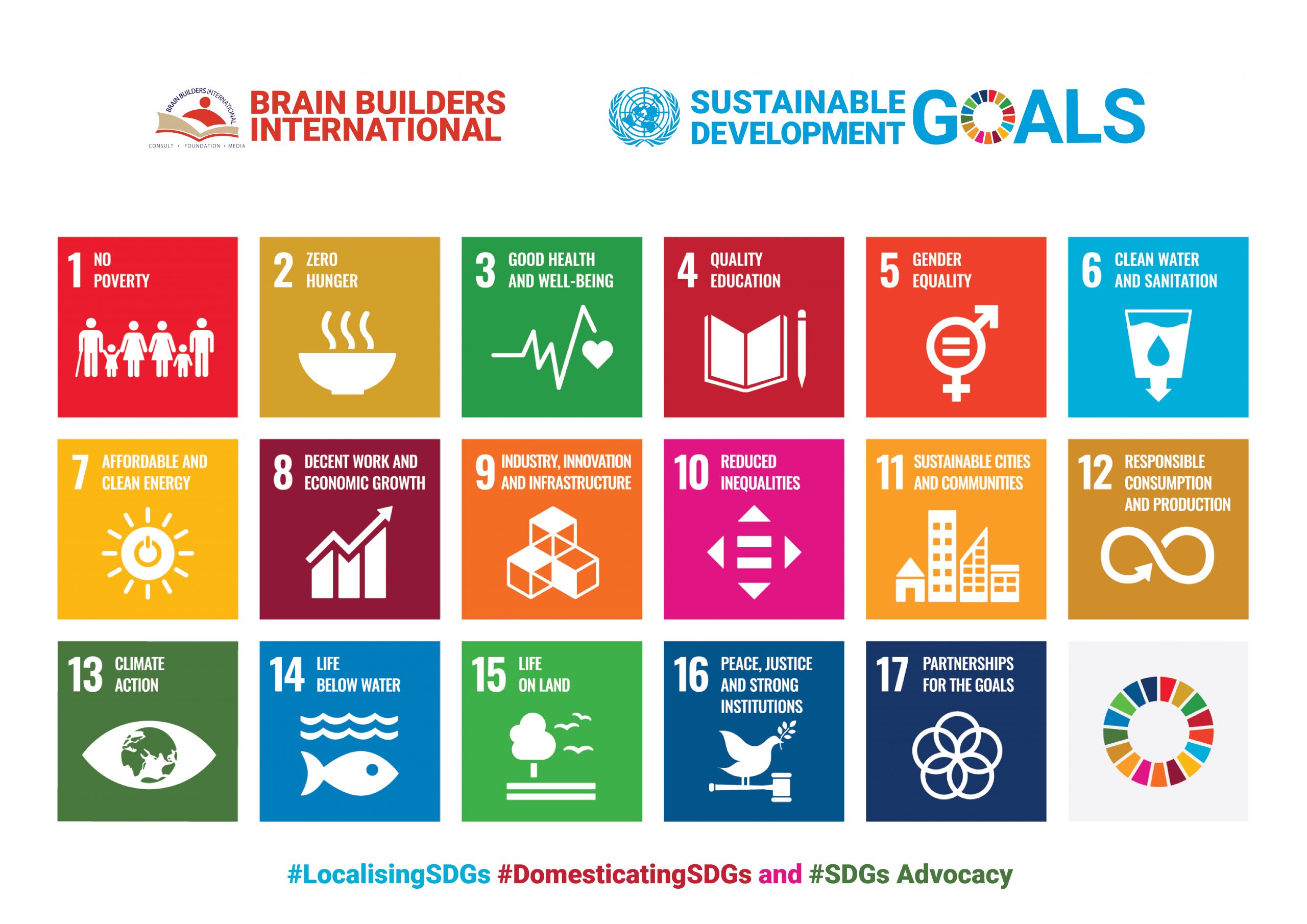
By September, 2020, it will be five years the global goals of Sustainable Development have been launched by the United Nations. At the launch in 2015, it was a consensus that by 2030, countries of the world would have made significant progress by achieving each of the goals. That could be said to be a very huge ambition on its own when looking at what led to the failure of its predecessors- the Millenium Development Goals (MDGs) and which brought in the SDGs. A quarter of the 15 years has already gone down if the countdown to the 5th anniversary of the launch is considered as September, 2020 approaches.
The five years of the global goals is significant in a lot of ways. One, if added to the previous 15 years of the MDGs, it would have been two decades of the United Nations’ attempt to make the world solve some of its major problems especially in vulnerable regions of the world including Africa. So, it calls for some reflection even as the SDGs could not be said to have been a new attempt at combating the problems identified through its set goals. So, there is a need to mainstream the attainment of the global goals to the local efforts being made to solve the identified issues focused by the goals.
Two, as the 5th anniversary inches closer, a deep look back at how the goals are propagated and keyed into by different regions of the world is equally vital. It is worthy to note that the UN has kept an eye on the achievements of the goals and what could be pointed to as considerable progress has been made. However, the attempt has been limited to regional levels. Success and milestones are measured on the basis of bloc achievement by countries in a region. This will not be helpful at all. Country-specific data at implementing the Goals should have rather been the focus. It is expected that by now, governments of different countries should have taken ownership and come up with national frameworks for the achievement of the 17 Goals.
Register for Tekedia Mini-MBA edition 19 (Feb 9 – May 2, 2026): big discounts for early bird.
Tekedia AI in Business Masterclass opens registrations.
Join Tekedia Capital Syndicate and co-invest in great global startups.
Register for Tekedia AI Lab: From Technical Design to Deployment (next edition begins Jan 24 2026).
Three, the first five years of the Goals is capable to give stakeholders a clear picture of whether the milestones of the implementation of all the goals are possible within the set timeframe. This calls for a five-year framework of assessment of the progress made on each goal. This would make setting up an early warning system for checking advancement on the goals. This will call for the cooperation of the countries of the world to give quality, accessible and timely data on progress made on each goal. Doing this would give room for a multi-layered approach to reviewing and tracking progress from country-level to regional-level and then the global-level.

Four, there must be a mechanism to ensure each signatory country has a way of contextualizing the attainment of the Global goals within the dynamics of its structures. For example, Nigeria as a country has her peculiarities of governance structure. There are ways through which the three-tier government distributes power and governance issues. Even though, many of the problems captured by the SDGs are spread on the exclusive, concurrent and residual list, it would require more advocacy to have them synergized with the global goals. For an appreciable success to be recorded, the country must approach the SDGs the way it attempted to implement the abandoned National Economic Empowerment and Development Strategy (NEEDS) initiated in 2004.
The strategy was not only focused at the national level, it had acceptance at the state and local government levels. The national and sub-national governments must have a clear approach and an agreed framework on the implementation of the goals. As the year of implementation of the goals enters its fifth year, there is no pointer that that is going to happen. This is more so that there is nothing legally binding the countries in implementing the sustainable development goals.
As we roll down the fifth of the fifteen years of implementation of the sustainable goals, it is imperative that the UN emphasizes that governments should not only look at external partnership but also be deliberate about internal cooperation to ensure the impact of the SDGs is felt by the most vulnerable people and that no one is left behind. The consequence of Africa not doing well on the Global goals is unimaginable.


